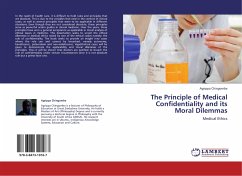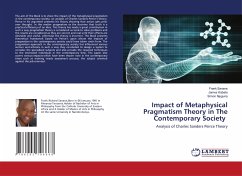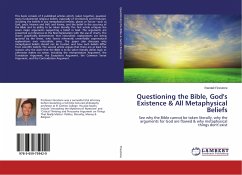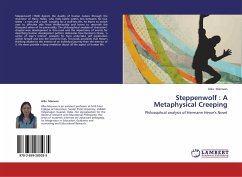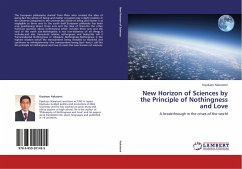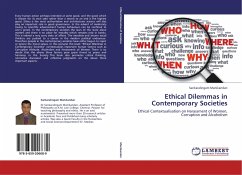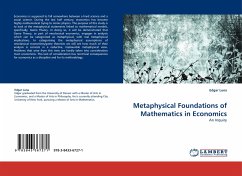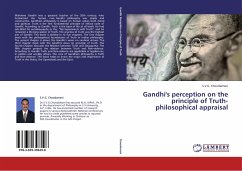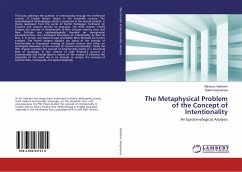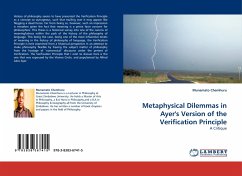
Metaphysical Dilemmas in Ayer''s Version of the Verification Principle
A Critique
Versandkostenfrei!
Versandfertig in 6-10 Tagen
32,99 €
inkl. MwSt.

PAYBACK Punkte
16 °P sammeln!
History of philosophy seems to have presented the Verification Principle as a concept so outrageous, such that mulling over it may appear like flogging a dead horse. Far from being so, however, such an impression is mistaken given the fact that meaning is a prima facie concern for philosophers. This thesis is a historical survey into one of the canons of meaningfulness within the park of the history of the philosophy of language. This being the case, being one of the most influential tenets of meaning in the history of philosophy of language, the Verification Principle is here examined from a ...
History of philosophy seems to have presented the Verification Principle as a concept so outrageous, such that mulling over it may appear like flogging a dead horse. Far from being so, however, such an impression is mistaken given the fact that meaning is a prima facie concern for philosophers. This thesis is a historical survey into one of the canons of meaningfulness within the park of the history of the philosophy of language. This being the case, being one of the most influential tenets of meaning in the history of philosophy of language, the Verification Principle is here examined from a historical perspective in an attempt to make philosophy flexible by freeing the subject matter of philosophy from the hostage of nonsensical' discourse under the pretext of Verification. The Verification Principle that I wish to discuss here is the one that was espoused by the Vienna Circle, and popularised by Alfred Jules Ayer.



